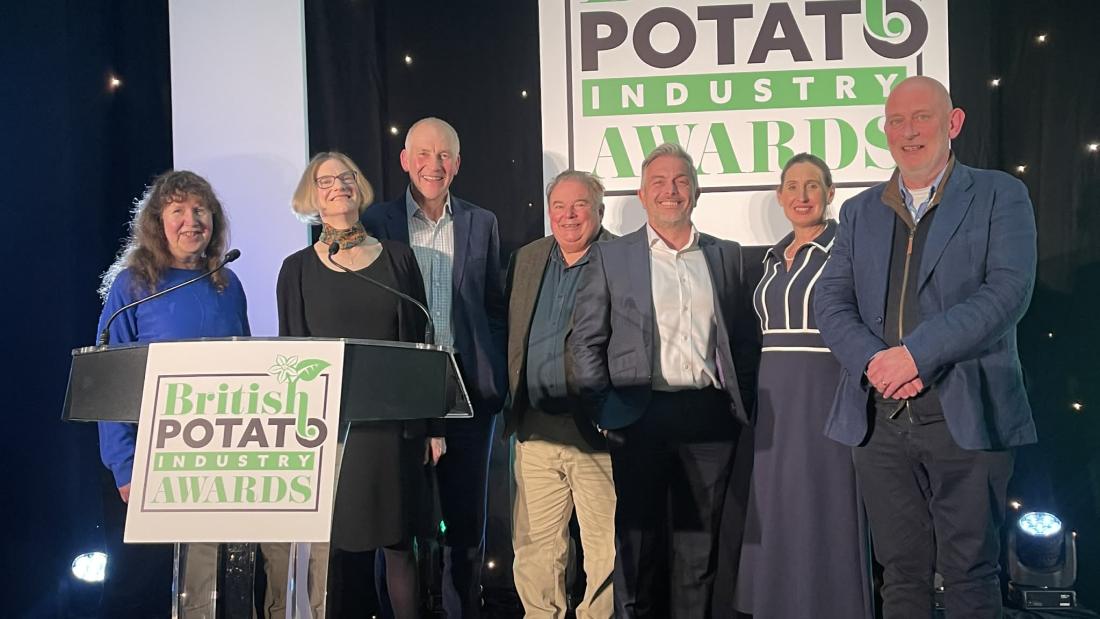The presentations to winners of 10 award categories were made after a celebratory dinner. The full list of finalists will be detailed in a special supplement in the January 2026 issue of the British Potato Review.
The TRIP Project faced stiff competition, and although it didn’t win this time, the project's contribution within the potato supply chain was appreciated by judges.
Dr Katherine Steele, Reader in Sustainable Crop Production and Director of Impact & Engagement in School of Environmental & Natural Sciences, who was also a speaker at the Event, was honoured to be nominated: "I am really proud that the TRIP project has been recognised by the Potato Industry as a finalist for this award. It means a lot to the whole team and we've learnt a lot from each other about the challenges and opportunities of sustainable Potato production."
The project, Transformative Reduced Input Potatoes (TRIP), brings together Dyson Farming Ltd., The James Hutton Institute, Emerald Research, Light Science Technologies, The Sarvari Research Trust and scientists from Bangor University’s School of Environmental and Natural Science and The BioComposites Centre to test out a range of regenerative cultivation methods that could reduce the environmental damage caused by producing potatoes. The project consortium includes a range of commercial potato growers across England - from Lincolnshire to Cornwall - and includes farms owned and managed by Dyson Farming.
The three-year TRIP project is funded by the Department for Environment, Food & Rural Affairs (Defra) through Innovate UK’s Farming Innovation Programme. It investigates new breeds of disease resistant potato, new nutrient treatments for use directly on leaves rather than being applied to soil where they can leach into watercourses, reduced tillage methods including use of mulches as a growing medium and new methods to monitor greenhouse gas emissions from farmers’ fields.





